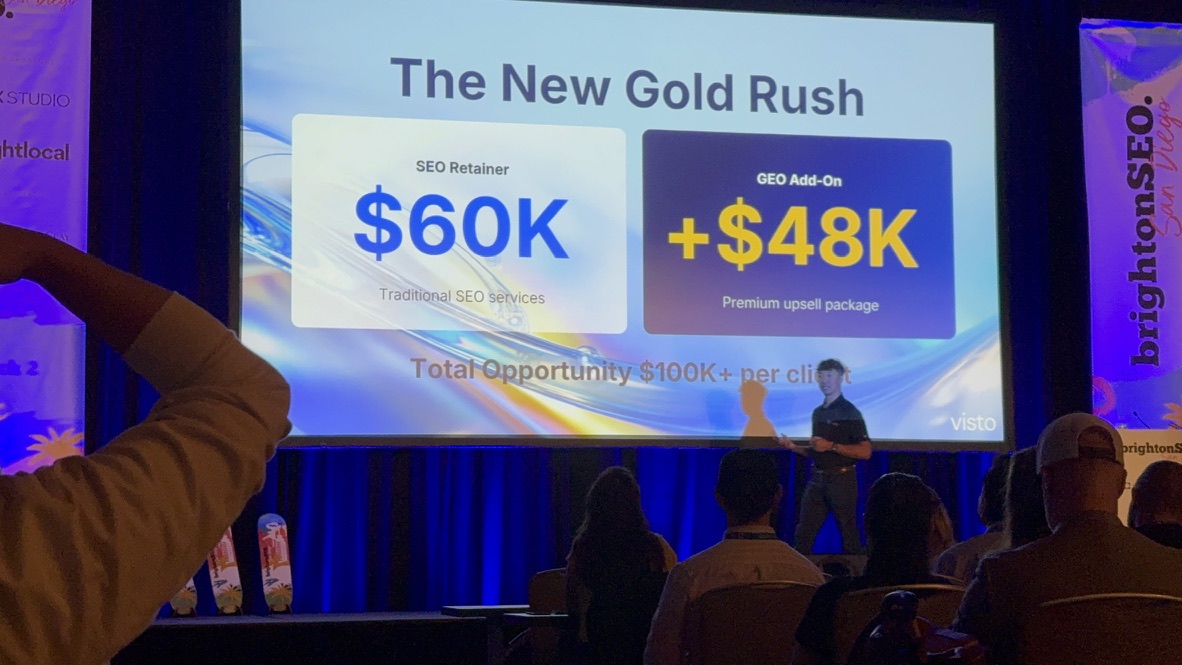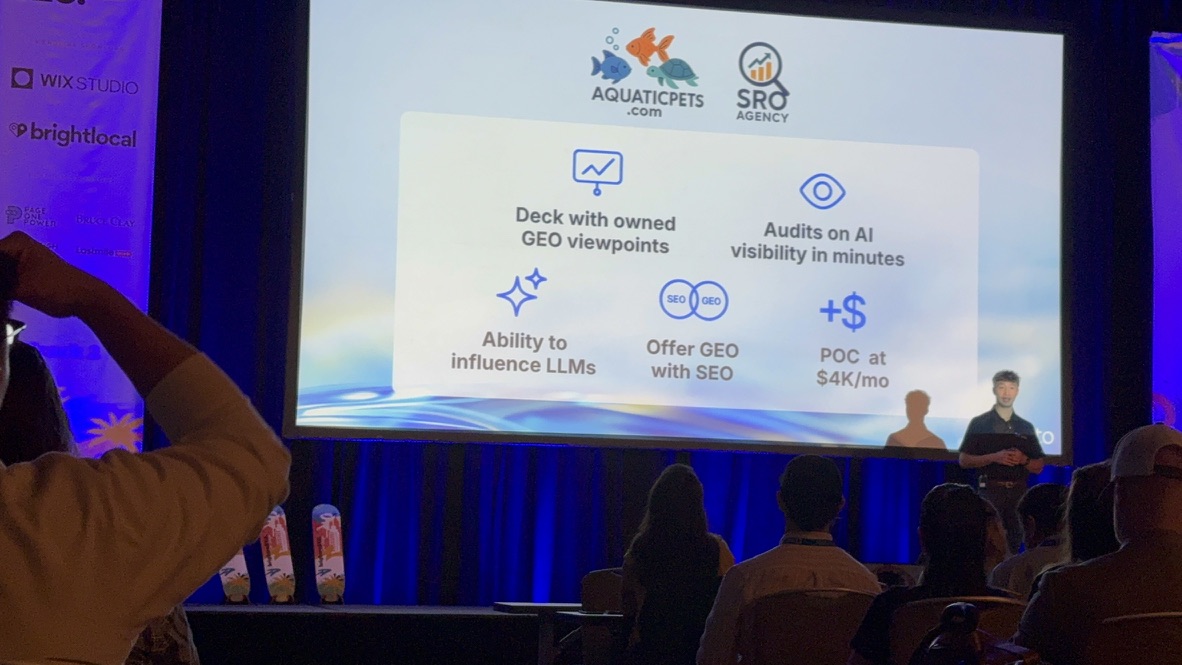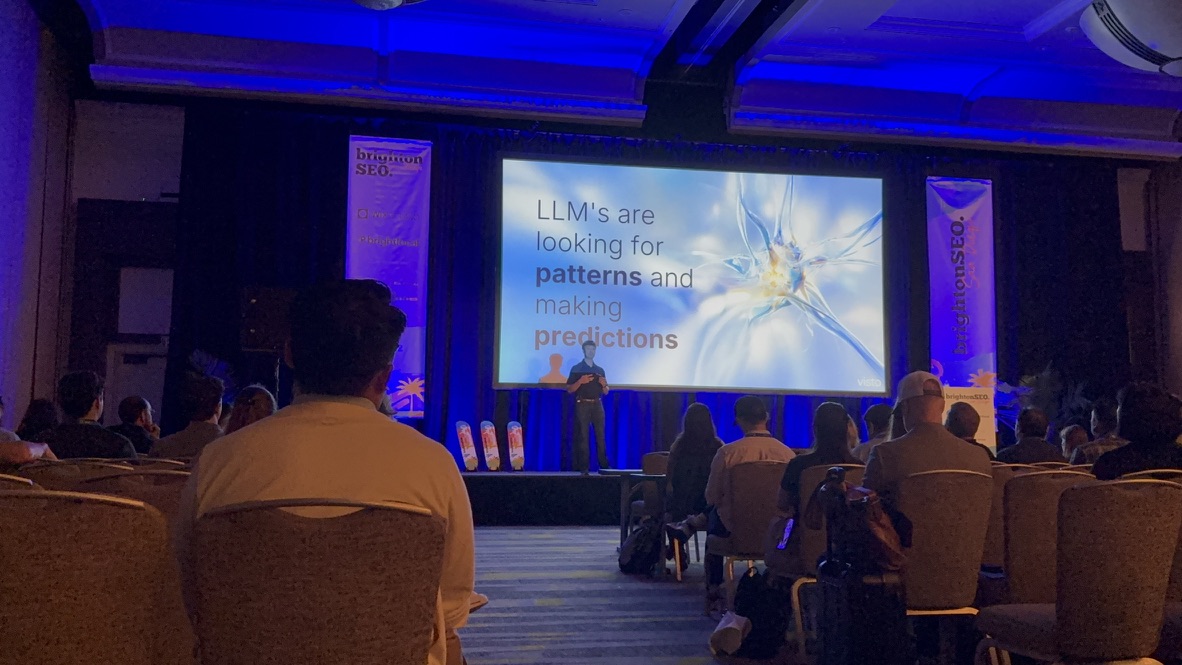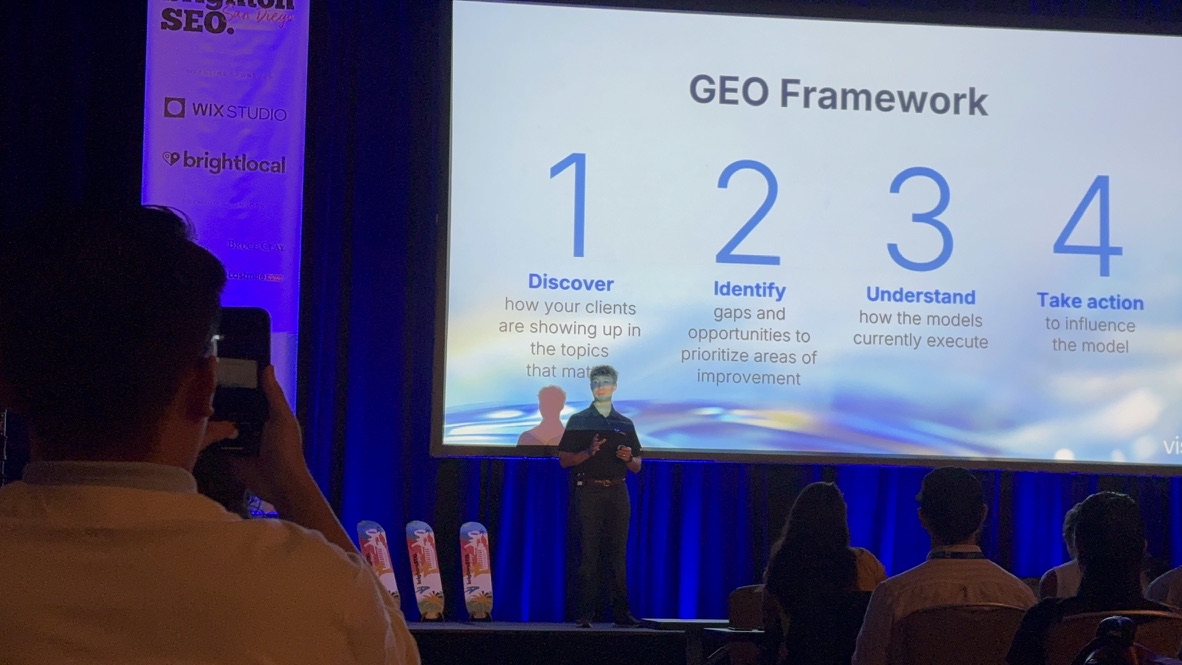How GEO and AI Search Optimization Will Benefit Your Business

Your potential customers are all asking AI search platforms about indsutry related stuff right now.
ChatGPT handles 200 million weekly active users. Perplexity processes 100 million searches monthly. Google AI Overviews appear in 84% of search results for commercial queries.
If your company isn’t appearing in these searches, then you have a problem.
While you've been optimizing and investing in traditional Google search, your competitors have started optimizing for AI platforms.
They're capturing customers before those prospects even reach your website.
We believe it’s the most significant change in search behavior since Google's launch in 1998.
How is the AI Search Revolution Is Reshaping Business Discovery
Traditional SEO is losing effectiveness at an unprecedented rate.
Organic click-through rates are dropping over 30% in the past 18 months as AI search adoption accelerated.
Search behavior has fundamentally changed.
Your prospects no longer start with "best accounting software" searches on Google. Instead, they ask ChatGPT: "What accounting software should a 50-person marketing agency use?"
They want conversational answers with specific recommendations and reasoning.
This creates a critical visibility gap. Your carefully optimized website content ranks well in traditional search results. But AI platforms don't find your content citation-worthy. They reference your competitors instead, positioning them as the trusted authorities in your space.
This acceleration stems from AI search democratizing discovery.
Smaller, more agile companies can now compete with established players by optimizing for AI platforms first.

What Is GEO and Why Your Business Needs It Now
Generative Engine Optimization (GEO) is not "SEO 2.0." This misconception causes most companies to struggle with adaptation.
Here's the fundamental difference:
Traditional SEO = Ranking + Relevance You optimize for keywords. You build authority. You climb the rankings.
GEO = Search + AI Processing There's still a search layer, but large language models analyze those results and decide what to include in their responses.
This creates an entirely new optimization challenge. Your content must be:
- Citation-worthy to AI systems
- Structured for AI comprehension
- Authoritative enough to influence LLM outputs
-
The market dynamics have shifted dramatically. Three months ago, 6 startups worked on AI search optimization. Today, 24+ companies compete in this space.
Traditional SEO metrics are failing. Organic click-through rates dropped 15-30% as Google AI Overviews expanded. Users get answers directly from AI without visiting websites. The traffic you spent years building through SEO is disappearing.
Yet 68% of companies worry about generative engine optimization while lacking any strategy to address it.
Five Critical Business Benefits of AI Search Optimization
- Capture Intent Before Competitors Do
AI search platforms intercept customer research at the earliest stage.
When prospects ask ChatGPT "What CRM should a 100-person SaaS company use?" they're showing high commercial intent. They're ready to evaluate solutions.
Traditional SEO captures customers after they've already formed opinions. GEO positions your business as the authoritative answer before customers begin website visits.
You become the recommended solution rather than one option among many.
Companies implementing comprehensive GEO strategies report 50% increases in favorable AI mentions within 90 days.
These aren't casual mentions. AI platforms cite businesses as trusted authorities, complete with reasoning for why they recommend specific solutions.
- Build Authority That AI Systems Trust and Cite
AI platforms prioritize content from sources they consider authoritative.
Unlike traditional search algorithms, large language models evaluate content quality, source credibility, and citation patterns to determine trustworthiness.
Companies using citation-based GEO tactics are seeing 15% visibility lifts across AI platforms. They focus on creating content that other authoritative sources reference and cite.
Your authority signals differ from traditional SEO factors.
AI systems evaluate citation frequency from reputable sources, content depth and expertise demonstration, schema markup quality, and cross-platform consistency in messaging.

- Future-Proof Your Digital Presence
According to the Digital Marketing Institune, they found that Google AI Overviews appeared in 84% of commercial search result in 2024.
Up from 20% less than a year previous.
It won’t be long until it hits near 100!
This percentage increases monthly as Google expands AI integration. Traditional organic results get pushed further down the page and the shift accelerates across all major platforms.
ChatGPT. Antropic. Perpliexity. Gemini. All the big players and there’s more to come.
Your digital presence needs optimization for platforms that don't exist yet. The GEO strategies you implement now will work across future AI search platforms because they focus on content quality and authority rather than platform-specific tactics.
- Maximize ROI Across All Search Channels
GEO doesn't replace traditional SEO. SEO is not dead… just yet.
But it amplifies your existing search investments. Content optimized for AI platforms often performs better in traditional search results because it focuses on user intent and comprehensive answers.
Marketing agencies using unified GEO approaches see improved performance across multiple channels for their clients.
Their content ranks well in Google while getting cited by AI platforms.
They maximize return on content creation by optimizing for both traditional and AI search simultaneously.
- Generate Higher-Quality, Ready-to-Buy Leads
AI search attracts prospects with specific, high-intent questions.
They're not browsing generally. They're researching solutions to immediate problems. The leads generated through AI search recommendations convert at higher rates than traditional search traffic.
Prospects arriving through AI recommendations already understand your value proposition.
The AI system explained why your solution fits their needs. You're not educating cold traffic.
You're serving pre-qualified prospects who understand your positioning and are ready to buy!

How GEO Works: The Technical Foundation Your Business Needs
GEO operates on fundamentally different technical principles than traditional SEO.
Generative engines are "black boxes within black boxes." Large language models, indexing systems, and semantic processing layers all operate with proprietary algorithms.
Your technical foundation requires four core elements:
Structured Data Implementation Focus schema markup on reviews, product information, and structured summaries. AI systems parse structured data more effectively than unstructured content.
Content Architecture for AI Processing Group related answers semantically rather than spreading thin content across multiple pages. AI systems prefer comprehensive resources over fragmented information.
Authority Signal Building Invest in off-site mentions and directory listings beyond your website. AI systems evaluate cross-platform consistency and citation patterns.
Citation-Worthy Content Creation Write clear, concise, well-structured content that avoids complexity causing hallucinations. AI systems favor content that provides definitive answers without ambiguity.
FAQ: Common Questions About GEO Investment and Results
How much should we budget for GEO implementation?
Most agencies allocate 20-30% of their SEO budget to GEO initiatives initially, then scale based on performance results. Companies typically see positive ROI within 90 days through improved lead quality and competitive positioning.
Will GEO implementation hurt our traditional SEO performance?
GEO strategies enhance rather than compete with traditional SEO. Content optimized for AI platforms often performs better in traditional search results because it focuses on comprehensive answers and user intent.
How quickly do businesses see results from GEO optimization?
Most businesses see initial improvements in AI mentions within 30-45 days of implementation. Significant visibility increases typically occur within 90 days. Early adopters often experience dramatic improvements because few competitors optimize for AI search effectively.
What happens if we don't optimize for AI search?
Your competitors will capture prospects before they reach your website. AI platforms will recommend alternative solutions while your business remains invisible in conversational search results. The traffic decline accelerates as AI search adoption increases.
How do we measure GEO success differently from traditional SEO?
Focus on mention frequency, recommendation context, citation quality, and lead attribution from AI platforms. Track how AI systems describe your business and which competitors they recommend alongside your solutions.
Can small businesses compete with enterprises in AI search?
AI search democratizes competition by focusing on content quality and authority rather than domain age or link volume. Well-optimized small businesses often outperform larger competitors in AI recommendations.





.avif)

